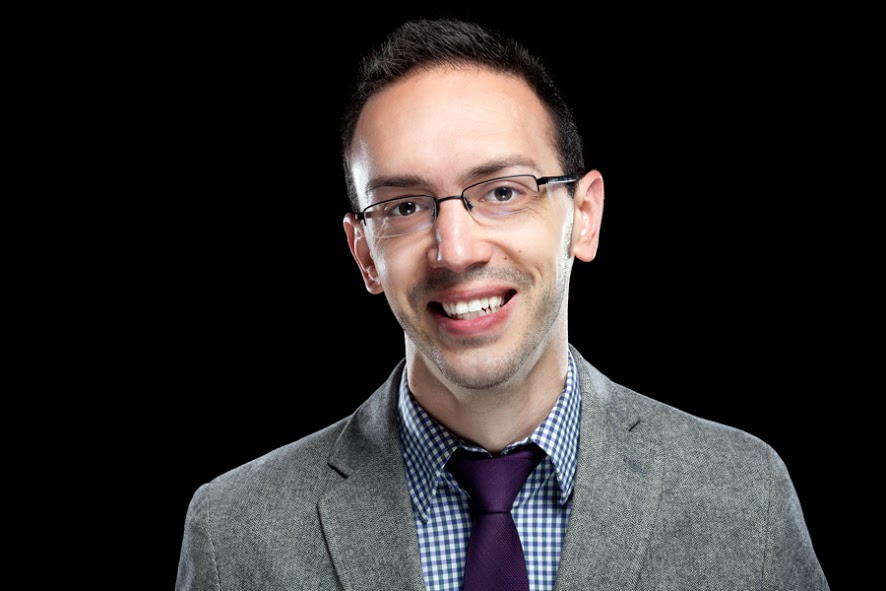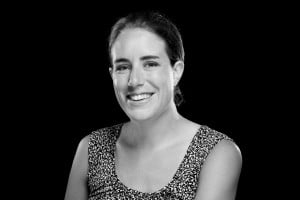 The following post was written by Kevin Harris, Director of Community Relations at The Marin Foundation.
The following post was written by Kevin Harris, Director of Community Relations at The Marin Foundation.
Reading over Jacob Heiss’s well thought-out posts on sexual identity (parts 1 & 2 with part 3 on the way), I’m left thinking that this might be an area (among others) in which the evangelical church could be assisted by the LGBT community. I’m not trying to imply that *LGB individuals are more capable when it comes to constructing sexual identity, as I simply do not think that is the case. Rather, LGB individuals regularly spend more time thinking about and constructing their sexual identity than most heterosexual individuals because of the social and environmental pressures that they encounter.
By default of being a sexual minority, LGB individuals are regularly confronted with how they differ from the majority of the population (i.e. their sexual orientation). When something about us is not normative, we commonly feel a greater desire to analyze and take ownership of the particular way in which we experience our being in relation to others (as is the case with LGB individuals and sexual identity and transgender individuals and gender identity). Being ostracized and marginalized for a particular aspect (regardless of its expression), only brings that part of our experience even more into the forefront. It is obviously not always the case that LGB individuals have spent more time investing in and seeking to understand their respective sexual identities, but my observations tend to line up with Jacob’s in that heterosexual evangelicals often seem to neglect this segment in relation to identity formation.
I started sifting through thoughts about my own sexual identity a little over ten years ago when I started coming out to close friends. Others may have had a different experience, but I did not start to really sift through sexual identity (though I was aware of the feelings much earlier) until I started to vocalize my attractions and describe reality as I was experiencing it in this respect.
In the earlier part of this journey, I spent time in an ex-gay program affiliated with Exodus International where it was communicated that our sexual orientation (defined in the program as our “struggle with same-sex attractions”) should not serve as a basis to describe or define our identity in any capacity considering our true identity is in Christ as children of God. My response to this philosophy was essentially: “Absolutely! I’m not gay. I am a Christian and how I identity and describe my attractions towards men has nothing to do with who I truly am.” At this point in my life, this way of of thinking conveniently fit in with the higher levels of internalized homophobia and self-hatred that I was experiencing. It allowed me to distance and in some capacity disassociate my sense of self from my sexuality. I started to read books like Who I Am In Christ (which I still highly recommend) in an effort to solely root my identity in Christ while neglecting the formation of any type of identity in relation to my sexuality.
My perception on identity slowly started to change when I began to believe that I could use the word “gay” in a descriptive sense to relate reality as I experienced it, rather than using it to define my ultimate reality. My developing understanding of the intersectional nature of our beings led me to question the feasibility of being able to single out and modify a specific aspect of myself, like some type of a fragmented being, without fundamentally altering other aspects of my personhood. And I started to take ownership of my sexuality as a gay man and began contemplating what it meant to live out of my sexuality and be a sexual being outside of physically erotic expressions of sexuality with others.
In this time of developing my sexual identity, I have at times waded into the error of over-identifying and affiliating myself with my sexuality and the broader LGBT community as many Christians have warned rather than primarily seeing myself in Christ. And it wouldn’t surprise me if I found myself making the same mistake again in the future. The need to reclaim parts of our being that have been individually and culturally shrouded in negativity and shame can lend itself to pushing back against constructs that we feel to be inhibitive in the name of empowerment.
But I’ve slowly been finding, primarily over the last year, that it has been from the place of forming my sexual identity and integrating it with my being that I am able to progressively move into loosening my grip on it and taking steps into more fully understanding and rooting my identity in Christ. It seems as if we (or at least I) need to have ownership of something concerning identity before we can start to give it up or move beyond it. We can only know something objectively from afar if we outright reject it.
It is in imposing our identity in Christ at the expense of cultivating our personal identities and “compounded states of being” as Jacob mentioned rather than learning to hold them in tension with one another, that we risk developmentally hindering Christians in their intellectual and spiritual formation. Earlier stages in life are in part about discovering and developing our being and sense of self in relation to others and the world around us. I think this may become difficult in relation to Christian identity and sexual identity because we often look at the identities through a dualistic framework that states we can only lay claim to either one or the other rather than both at the same time. Seeing two seemingly contradictory identities or ideas as coexisting and each having a rightful place, even if they are assigned differing degrees of priority, is confusing. There is a reason that the idea of the trinity being both three and one is so difficult for us to grasp.
Thankfully, it seems that we often reserve this tendency to impose identity in Christ as a trump card at the expense of personal identity formation around contentious issues or ideas that may make us uncomfortable, like sexuality and at times race. Individuals in Christian circles are typically free to cultivate their identities in relation to gender, family, relationships and belonging systems, personality, sociocultural conditions in which they live, and nationality.
When we do not invest energy in developing our sexual identity though, we are less likely to explore how our sexuality plays itself out beyond romantic relationships and genitalized behavior, thus oversimplifying its expression. We may miss out on the way that our sexuality influences the particular manner in which we express ourselves in all of our relationships (acquaintance, friendship, romantic) in varying degrees of intimacy. Without an established sexual identity, questions pertaining to how our sexuality plays out in our relationship to God (as a lens through which we view God, our drive for connection/union, and how our desire to connect with God may be influenced) could be more difficult to explore deeply.
In the past, I’ve primarily experienced well-intentioned arguments around colonizing my sexual identity in the name of Christ with annoyance and frustration, but I’m starting to think that it’s pointing to an area that evangelicals could afford to invest more in time themselves. LGB individuals that are Christian and nonreligious tend to spend more time developing their sexual identity out of necessity, so I’m left wondering if the broader church might find something of worth if they considered inquiring into the collective wisdom of the broader LGBT community on the topic. I imagine the humbleness implied in simply posing the question in itself would engender some degree of respect from LGBT individuals and could help with setting the stage for more constructive dialogue.
Much love.
*LGB was used as opposed to LGBT in sections to highlight individuals in the broader community who are specifically identified around the concept of sexual orientation. That is not to say that transgender individuals do not have or construct sexual identities, but rather the designation in the acronym refers to gender identity. Since I was not discussing gender identity in the post, I wanted that to be reflected in the particular acronym that was employed where appropriate.











